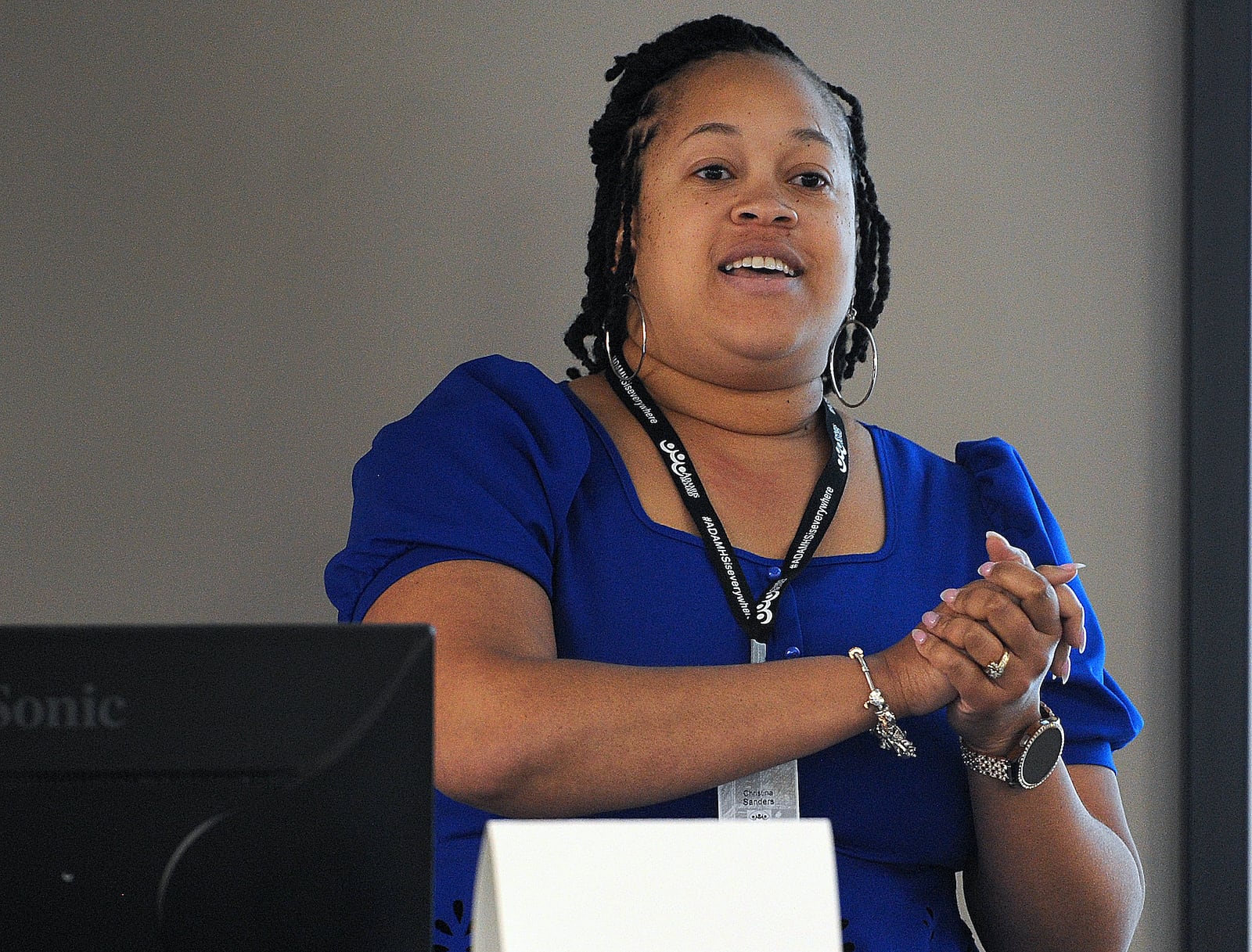While the ADAMHS board has warned its providers that this was coming, many of those organizations have been unable to plan their budgets or services until they know what funds they will receive.
“Our program stops suicide. We stop kids from cutting. We have little kids in Second Step who have told us, ‘My dad makes me drink alcohol.’ All of these things,” said Nancy Bleil, who works at Samaritan Behavioral Health, during a recent ADAMHS board meeting.
“We’re changing their lives, and that’s not going to happen anymore because we don’t have the money,” Bleil said.
The Montgomery County ADAMHS board reallocated some $10 million in funds back to the human services levy, which is shared by multiple agencies, two years ago given a surplus of cash reserves the board had.
“We did have a reduction in our base allocations for expenditures of 38%, but we were well aware of that. That’s not anything that’s unusual going into a campaign year, and we were planning accordingly,” said Chrissy Sanders, chief financial officer at Montgomery County ADAMHS.
The human services levy is about 60% of the Montgomery County ADAMHS board’s budget, ADAMHS records say.
The extra cash reserves the board had in place was due to large grants the board had received, but now that the cash reserves have gone down, the board will be reducing the amount of funds it allocates to providers in the community.
“We’re very concerned,” said Lisa Carter, CEO of South Community.
Any cuts that any of the providers in the county experience will mean a cut in services provided to the community, Carter said.
Samaritan Behavioral Health, Inc. has a large outreach into the community, particularly with students, said Beth Esposito, president of Samaritan Behavioral Health, Inc. They are looking at how to continue to provide services, but a cut in funding could impact staffing.
The board has since been trying to spend down its cash reserves to get its reserves to be about 9% of its annual budget, which the human service levy council had decided in previous years was a good amount to have in the reserves heading into a campaign year, said Helen Jones-Kelley, executive director of Montgomery County ADAMHS.
The campaign year for one of Montgomery County’s two human services levies is expected to be next year.
“How do you go ask taxpayers for dollars if you’re perceived as an agency as sitting on a lot of money and not utilizing the money, because we were just really blessed with dollars at that point,” said Jones-Kelley.
Now, some of the other funding sources for the Montgomery County ADAMHS board, like the large grants it received that built up its cash reserves in previous years, are either flat or no longer available in this time frame, Jones-Kelley said during a recent informational meeting.
The board plans on prioritizing state-mandated programs, which are primarily treatment-based services, as agencies come back around for funding to get them through to the end of the year.
Montgomery County ADAMHS has also seen increased need for those services county-wide, Jones-Kelley said.
Prevention services are most likely to take a hit in funding.
“We had reached a point where we were really building out more prevention programs, which are not mandated by the state, but really have a strong impact on the system overall,” Jones-Kelley said.
The Montgomery County ADAMHS board is also implementing a change in its funding cycle, moving funding for prevention services from a state fiscal year cycle to a calendar year cycle.
“It has been on a state fiscal year cycle up until this point,” Jones-Kelley said. “We’ve been using the dollars that we get from the state and then supplementing that funding with levy dollars.”
This year is also the first year providers will be able to apply for levy-funded carryover opportunities, said Tristyn Ball, director of prevention and early intervention at Montgomery County ADAMHS.
This will be the remaining local funds available for applicants who have money remaining in their budget, she said.
“I don’t know what these funds will look like if there are funds at all,” Ball said.
About the Author




